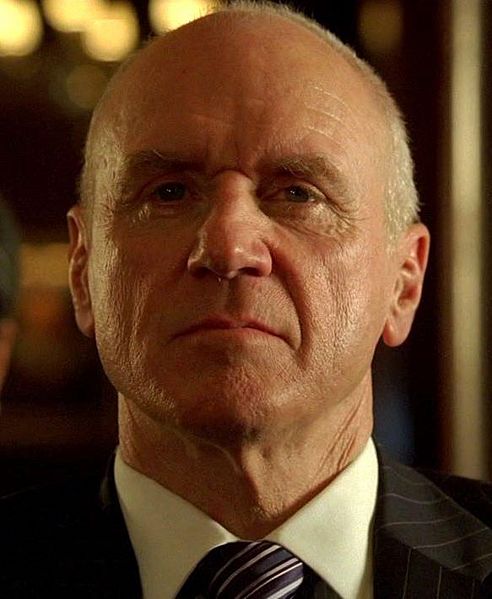Last night's Lost, "Dr. Linus," finally signaled our penetration through the rocky outer crust of the final season and the beginning of our descent into the gooey, warm nugat center of the final hurrah. I'll explain what I mean by that, but in order to do so I've got to take you into the way back machine for a moment:
Season three began with a half-dozen episodes focusing on a part of the ensemble, locked up in the Others' jail. This was a slow and frustrating start for an already frustrated audience, and contributed to the bad press the show got at that time, right? But eventually, once we got to know this new cast of characters our protagonists were now immersed with, the season's tonal and thematic arcs became clear--we knew which direction the season was heading, what story it was trying to tell. By the final four episodes of season three, many viewers were saying the show had gone from its worst place to its all-time best place. And that was before the season concluded with perhaps the most pivotal conceptual invention in the show's history. (Immortalized, of course, in Jorge Garcia's "Geronimo Jack's Beard" podcast.)
Look at season five. The first few episodes were a little tough to swallow--not poorly-written, mind you, but just not very rewarding (at least not until watching through again on DVD, knowing where they were headed). It just consisted of a LOT of time-jumping, leaving audiences scratching their heads as to whether the potential for Back to the Future plotlines was really justified this late into the series, or if it was just the show jumping a Dharma-branded shark.
But, just like in season three, about a third of the way into the run, the reason behind the season's central conceit starts to become clear. The writers knew the viewers desperately wanted to know more about the nooks and crannies of the island's history--What happened to the Dharma Initiative? What was the story with Rousseau? So instead of just telling it to us, they made those events a pivotal component in our character's lives, by putting our characters in the history. Now, what was became what is.
And it made for some of the most satisfying long-term payoffs in the show. Payoffs that could never happen in a series that wasn't as uniquely dense and interconnected as Lost, such as all that Miles and Daddy Chang stuff towards the end of the season. When Chang's hand was crushed during the Incident, it was one of those little details that showed the master plan for the season--now, all those Lostpedia-obsessing fans who wanted to know why Chang appeared to have a fake hand in the first Orientation film could have an answer. (More mysterious: Why, in a later-dated Orientation film, Chang's hand is A-OK. Cloning experiments? Casimir effect resulting in a duplicate Chang/Candle/Wickman? Egregious continuity error? Such little things will be the stuff fans argue over for eons.)
Now, season six. The first batch of episodes has again left people mostly scratching their heads. Sure, the flash-sideways are an interesting idea, but it seems to many that we just don't have time for these shenanigans this late in the series, with so many questions left unanswered. But last night's Ben-centric "Dr. Linus" was without a doubt the most compelling use of the format so far. We still don't know how, story-wise, the two timelines are going to inevitably merge. Are we seeing a twisted fulfillment of the promises Smokey has made to the castaways who've joined his effort? I tend to think so, but we'll see in time. All I know is, this season has finally started.
It's just too bad the intended oomph of that final, "Oh, it's on!" scene was completely debilitated by the goofy periscope gag. Austin Powers called, it wants its bit back.






No comments:
Post a Comment